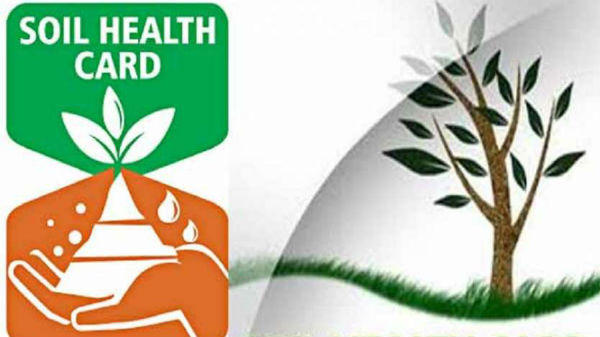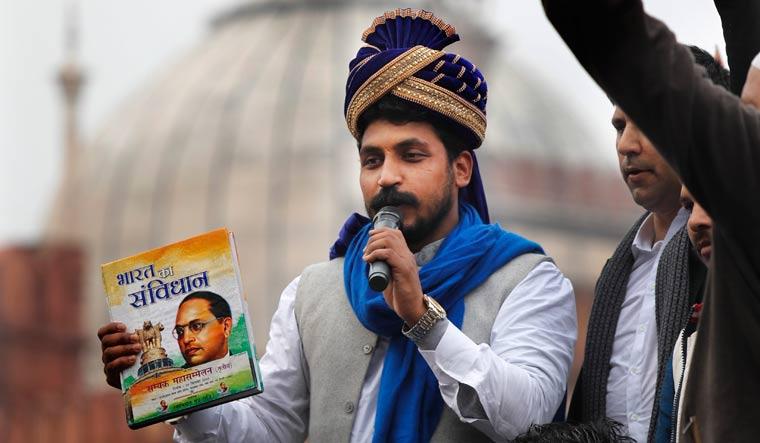
1) World Thinking Day: 22 February

•World Thinking Day, originally known as Thinking Day, is celebrated annually on 22 February by all Girl Scouts, Girl Guides and other girl groups worldwide. The day is observed to think about fellow brothers and sisters around the world, address their concerns and understand the true meaning of guiding.
•The theme for World Thinking Day 2021 is peacebuilding. Peacebuilding is at the heart of Girl Guiding and Girl Scouting and is as vital and relevant today as for the last 100 years. By completing the steps in the Stand Together For Peace activity pack, Girl Guides and Girl Scouts will; Stand Strong, Stand up and Stand Together for peacebuilding.
2) International Mother Language Day: 21 February

•The International Mother Language Day (IMLD) is observed annually on 21 February to raise awareness regarding linguistic and cultural diversity and to promote multilingualism. The theme of the Day this year, “Fostering multilingualism for inclusion in education and society”.
3) Vice President releases ‘Maverick Messiah’, a political biography on NTR
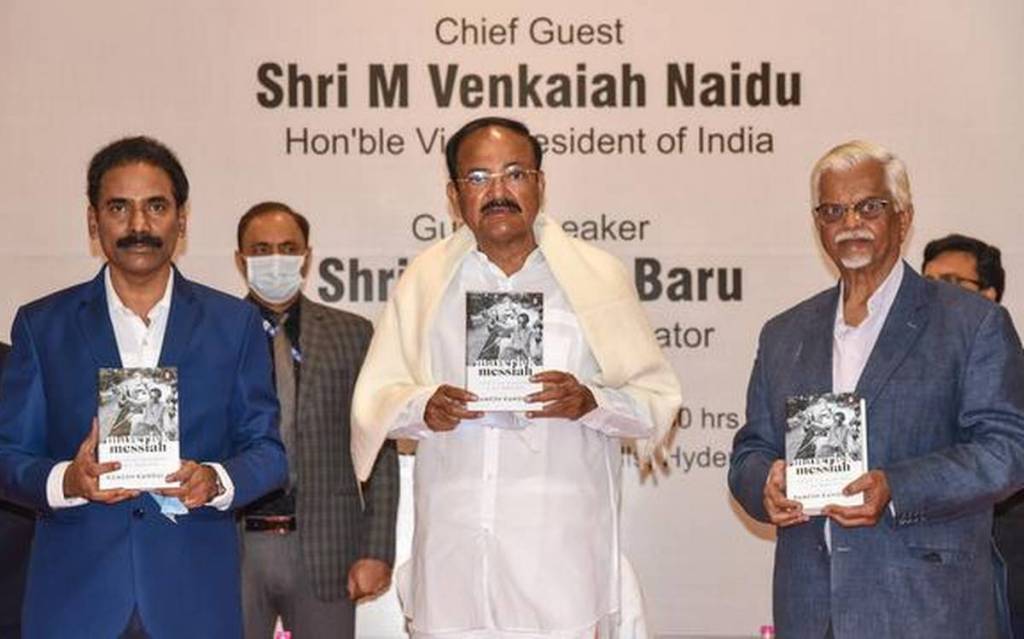
•Vice President M. Venkaiah Naidu has released “Maveric Messiah”, a political biography on former Andhra Pradesh Chief Minister N.T. Rama Rao authored by senior journalist Ramesh Kandula. NTR was ranked among the top pioneers of ‘alternative politics’. His entry into politics and ‘dramatic’ success within about nine months of floating a regional party gave a new direction to national politics.
4) India & Maldives sign 5 deals to boost infrastructure
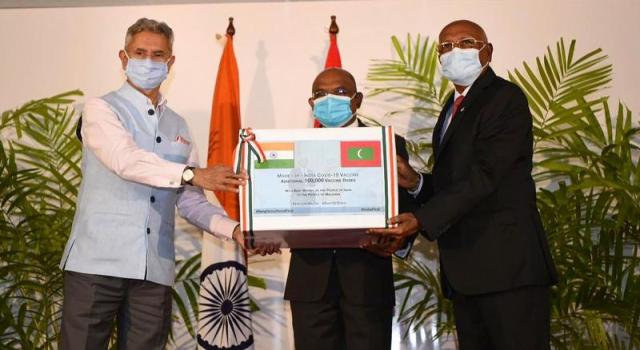
•External Affairs Minister (EAM), S. Jaishankar was on a two-day official visit to the archipelago nation the Maldives to review bilateral ties and development cooperation. During this visit, Mr S Jaishankar handed over 1 lakh additional doses of the made-in-India COVID-19 vaccine to the Maldives. With this, the total Covid vaccine doses gifted by India for the Maldives reaches two lakh. Jaishankar also offered a $40-million line of credit (LoC) to support the development of sports infrastructure in the Maldives.
Apart from this, five pacts were signed between India and Maldives to boost infrastructure in the island nation. They included:
•Amendatory Agreement to repurpose an older EXIM Bank of India Line of Credit of USD 25 million for Road Devt.
•Letter of Intent between EXIM Bank and local authorities for financing a housing project of 2000 units in Hulhumale.
•MoU on grant funding USD 0.5 million for a fish processing plant in Kendhikulhudhoo in the northern Maldives.
•MoU on capacity building and exchange of content and expertise between Prasar Bharati and Public State Media, Maldives.
•MoU on sustainable urban development between MoHUA and Ministry of national planning, housing and infrastructure, Maldives.
5) India & Ethiopia Sign Agreements On Visa Facilitation and Leather Technology
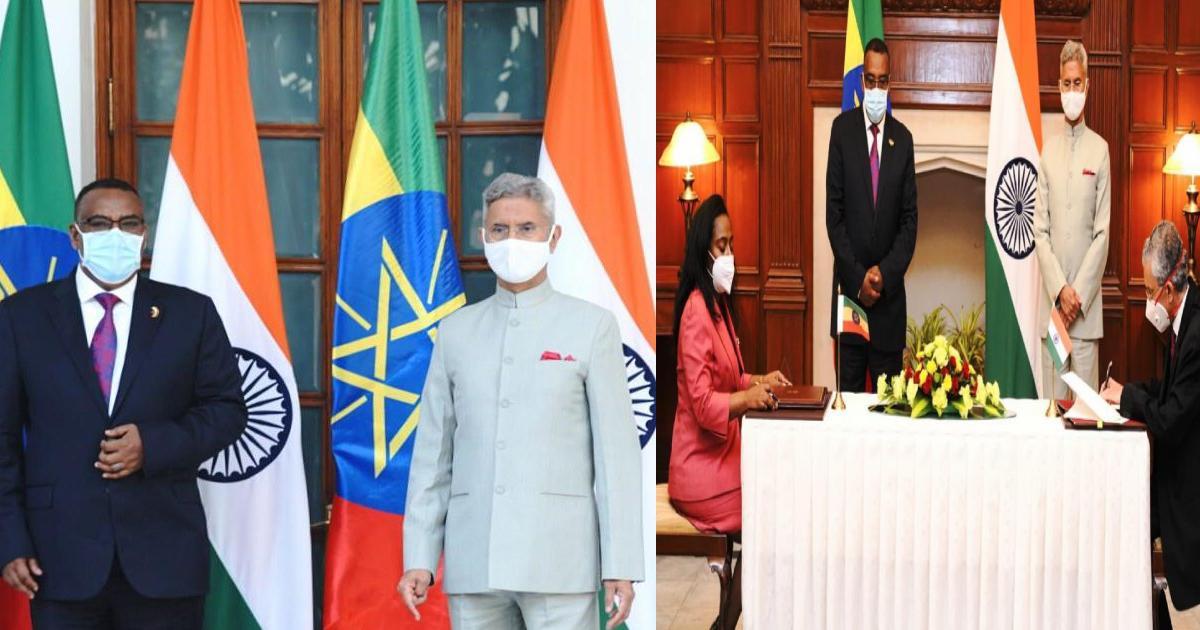
•India and Ethiopia signed two agreements related to visa facilitation and leather technology. The Ethiopia Deputy Prime Minister and Foreign Minister, Demeke Mekonnen Hassen is on a 4-day visit to India to hold useful and productive discussions on a range of bilateral and regional issues.
•During the course of meetings, India’s External Affairs Minister S Jaishankar and Ethiopian minister Hassen agreed to expand India and Ethiopia bilateral agenda especially defence, economic, S&T, digital and cultural cooperation.
6) Indian And Indonesian Navies Conduct PASSEX Exercise
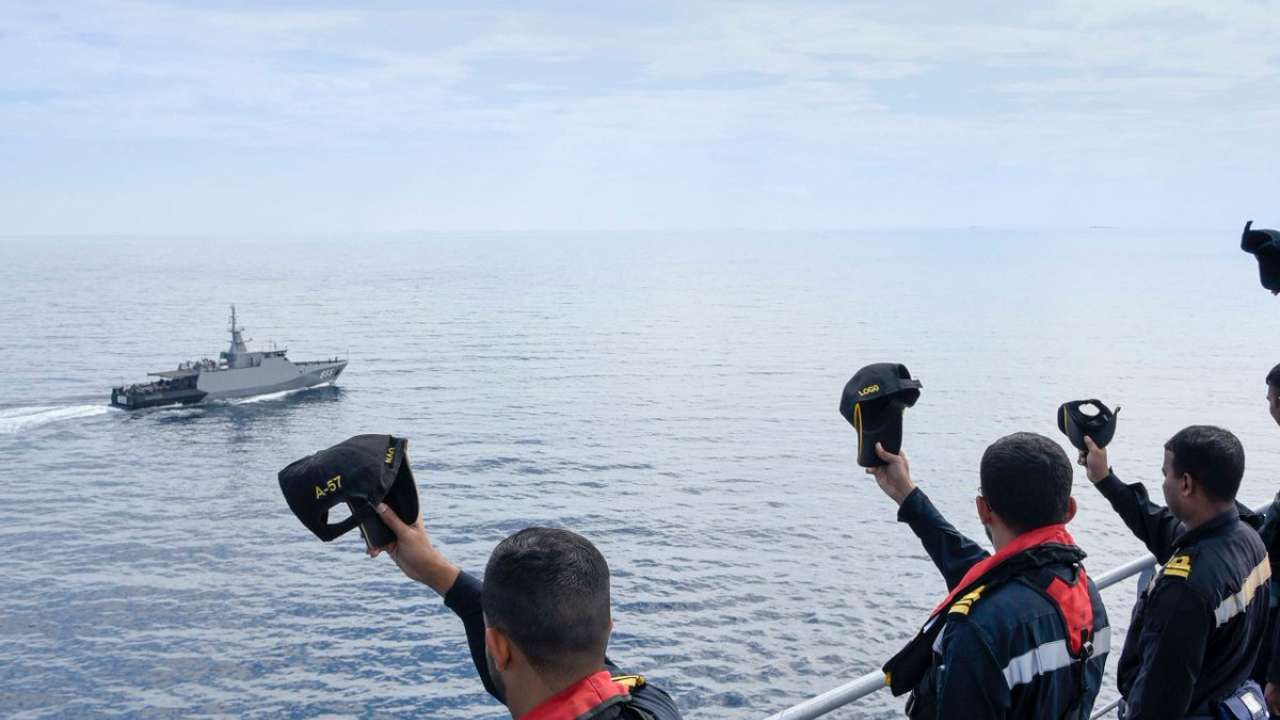
•The Indian Navy and the Indonesian Navy conducted the Passage Exercise (PASSEX) on February 18, 2021, in the Arabian Sea. The military exercise between the navies of both countries aims to enhance operational interoperability and overall cooperation among them. Indian naval ship INS Talwar and the Indonesian Navy’s multirole corvette KRI Bung Tomo participated in the exercise.
7) Assam CM lays foundation of first skill university of eastern India
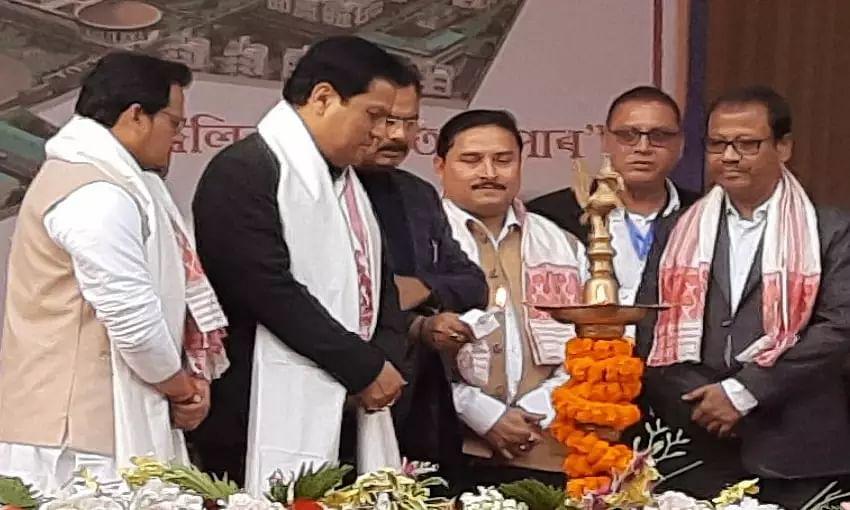
•The Chief Minister of Assam, Sarbananda Sonowal has laid the foundation of the first skill university of eastern India in Darrang district in Assam. The state-of-the-art skill university would be built with a financial outlay of Rs 1,000 crore. It will impart training to over 10,000 students in 12 disciplines. The university is expected to be completed by 2026. It will have “understandings” with countries like Germany, Taiwan, South Korea, Israel, Japan, England.
8) Indian Oil signs pact with Greenstat Norway for hydrogen fuel

•Indian Oil Corporation Limited (IOCL) has signed a Statement of Intent with Greenstat Hydrogen India Pvt. Ltd., a subsidiary of Greenstat Norway, to set up a Centre of Excellence on Hydrogen. Under this association, a Center of Excellence on Hydrogen (CoE-H) including CCUS and Fuel Cells, would be developed for clean energy by IndianOil and M/s Greenstat in cooperation with Indo-Norwegian Hydrogen Cluster companies/organizations.
9) United States officially re-joins Paris Climate Agreement

•The United States has officially rejoined the Paris Agreement, under the Presidency of US President Joe Biden. Earlier, in November 2020, the US had officially exited the agreement on the order of then-President Donald Trump.
•The landmark Paris climate agreement was signed in 2015, as per which countries are expected to enhance their commitments to curb greenhouse gas emissions every five years. The goals of the global pact are to limit global warming to well below 2°C and pursue efforts to limit it to 1.5°C.
10) Prakash Javadekar inaugurates Atal Paryavaran Bhavan in Lakshadweep
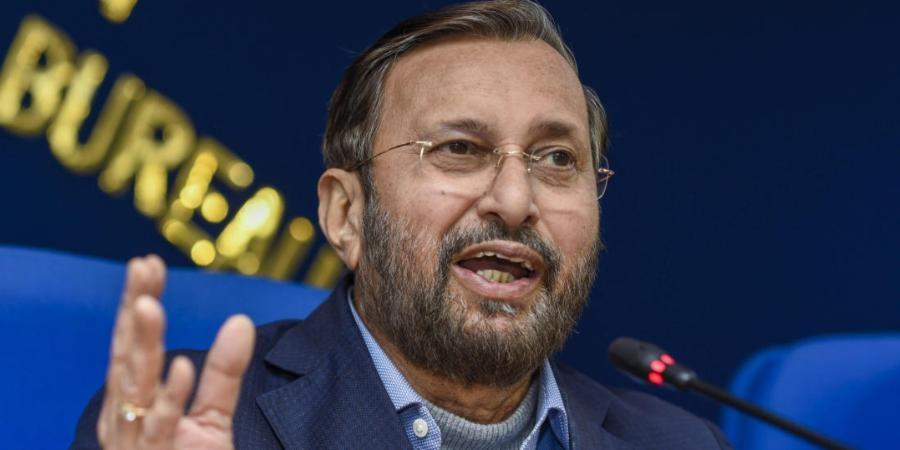
•The Union Minister for Environment, Forest and Climate Change, Prakash Javadekar, inaugurated the Atal Paryavaran Bhavan at Lakshadweep. Prakash Javadekar is on a four-day official visit to Lakshadweep from February 19 to 22, 2021.
•During the visit, the minister attended high-level meetings with the Secretaries of various departments in the Lakshadweep administration, participated in various official programmes at Suheli, Kadmat and Bangaram islands. The minister will also evaluate the major innovative initiatives of the Union Territory’s Forest and Environment Department, so that Lakshadweep undergoes comprehensive development, without compromising it’s commitment to nature.
11) S&P Global Ratings: India to be among fastest growing emerging economies in FY22

•The S&P Global Ratings has projected that India will be one of the fastest-growing emerging market economies in the fiscal year 2021-22, with a GDP growth rate of 10 per cent. The continuous good performance by the agriculture sector, flattening of COVID-19 infection curve, pickup in government spending and the recently released budget are some of the factors for the positive growth prospect of the country.
12) L&T delivers 100th K9 Vajra howitzer to Indian Army
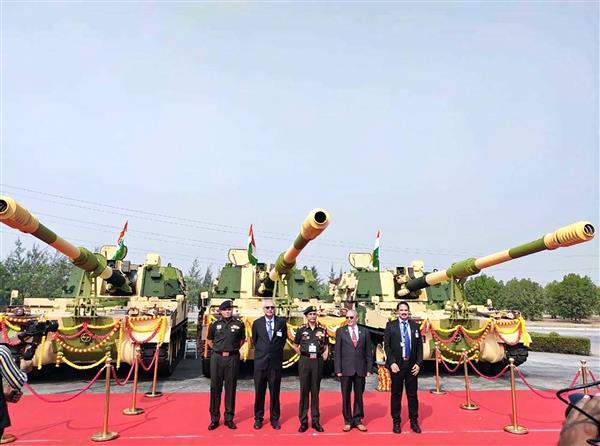
•Army Chief Gen Manoj Naravane has flagged off the 100th K9 Vajra tracked self-propelled howitzer built by Larsen & Toubro (L&T) at its armoured system complex at Hazira in Gujarat. L&T had completed the delivery of all the howitzers under the contract awarded in May 2017 ahead of schedule.
13) Novak Djokovic and Naomi Osaka wins Australian Open 2021

•In tennis, Japan’s Naomi Osaka won her fourth Grand Slam title on February 20, 2021, after she beat American Jennifer Brady in the women’s singles game of the Australian Open final 2021. The four Grand Slam title for Osaka comes two Australian Open titles (2021 and 2019) and two US Open title (2018 and 2020). In Men’s singles final, Novak Djokovic claimed his ninth Australian Open crown and the 18th Major Grand Slam overall, as he defeated Daniil Medvedev.







